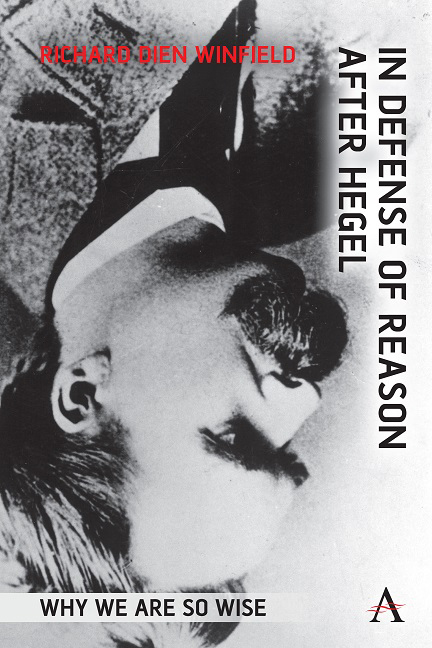Book contents
- Frontmatter
- Contents
- Acknowledgments
- Introduction
- 1 Why We Are So Wise: Hegelian Reflections on whether Reason Can Be Enhanced
- 2 Self-Determination in Logic and Reality
- 3 Hegel’s Overcoming of the Overcoming of Metaphysics
- 4 On Contradiction: Hegel versus Aristotle, Sextus Empiricus, and Kant
- 5 Overcoming Actuality: How Hegel Frees Us from the Prison of Modality
- 6 Time and Reason
- 7 Hegel and the Problem of Consciousness
- 8 Hegel and the Origin of Language
- 9 The Logic of Right
- 10 A Dream Deferred: From the US Constitution to the Universal Declaration of Human Rights
- 11 World Spirit on the Campaign Trail in Georgia: Can the Philosophy of Right Be a Guide to Social Reform?
- 12 The Classical Nude and the Limits of Sculpture
- Bibliography
- Index
6 - Time and Reason
Published online by Cambridge University Press: 26 May 2022
- Frontmatter
- Contents
- Acknowledgments
- Introduction
- 1 Why We Are So Wise: Hegelian Reflections on whether Reason Can Be Enhanced
- 2 Self-Determination in Logic and Reality
- 3 Hegel’s Overcoming of the Overcoming of Metaphysics
- 4 On Contradiction: Hegel versus Aristotle, Sextus Empiricus, and Kant
- 5 Overcoming Actuality: How Hegel Frees Us from the Prison of Modality
- 6 Time and Reason
- 7 Hegel and the Problem of Consciousness
- 8 Hegel and the Origin of Language
- 9 The Logic of Right
- 10 A Dream Deferred: From the US Constitution to the Universal Declaration of Human Rights
- 11 World Spirit on the Campaign Trail in Georgia: Can the Philosophy of Right Be a Guide to Social Reform?
- 12 The Classical Nude and the Limits of Sculpture
- Bibliography
- Index
Summary
The Inscrutable Ubiquity of Time
Time is inescapable, whether we turn within or without. Nothing in the material universe can evade the hold of temporality, nor can anything in the inner sanctum of our mental life fall beyond its reach. Whatever endures in nature or mind must do so through time, just as whatever comes and goes must find its place in temporality. Whether real or imagined, no factor we consider can avoid possessing a temporal determination of its own or a temporal site in our consideration.
Just as ubiquitous are all the phases and modes that time is always recognized to have. Past, present, and future continually present themselves in everything outer and inner, just as do simultaneity, duration, and succession. Every experience incessantly confronts us with every phase and all the basic modes of time. It matters not whether we observe our environment, our bodies, or psychological phenomena—nowhere and never are the full coterie of temporal determinations absent.
Nonetheless, as ubiquitous and familiar as they are, every one of time's phases and modes seems to lack any confirmable reality and to defy any rational account. The being of past, present, and future disappears as soon as it is considered. What is past is no longer, what is future is not yet, and the being of the present instantaneously slips into the nonexistence of the past, while an equally ephemeral moment enters from the future only to follow the immediate demise of its predecessor. No interval can be found between past and present and future, for each has nothing to hold off the supplanting of the future by the present and the present by the past.
The same lack of being seems to plague the modes of time, which might otherwise appear to surmount the ephemeral phasing of past, present, and future. Simultaneity offers the relation of distinguishable factors at the same time, be they spatially or mentally distinct. Yet if the present has no more being than nothingness due to its immediate slippage into the past, how can any simultaneous factors have any reality of their own, let alone a real relation? If their coeval being is at an instant of no temporal breadth, how can their presence be distinguished from their absence?
- Type
- Chapter
- Information
- In Defense of Reason after HegelWhy We Are So Wise, pp. 91 - 102Publisher: Anthem PressPrint publication year: 2022

